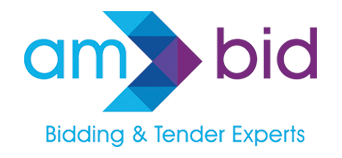
A successful business is one that knows who they are, where they are going and how they are going to get there. Not all businesses have a core vision driving them and day-to-day delivery can get in the way of having the time and clarity to plan for the future.
It is crucial to take the time to step away from your business and plan ahead, to focus on key business areas such as Sales, Operations, HR, Finance and Marketing and ensure there is a plan in place for each area.
Why is a Marketing Plan Essential?
Many businesses start with a focus on marketing but drift into relying on word of mouth and random lead generating activity.
A marketing plan is essential as it provides key messages and the quality, quantity and consistency of leads you need. It also supports strong relationship building and in-depth knowledge of your current and future clients – what they want, when they want it and why you can provide it. The role of marketing is to bring your vision to life, communicating who you are and what you have to offer, this is the backbone of your business plan and should underpin everything you do.
This gives the clarity on where you are going, the confidence and mindset to know how to get there and a clear path to take your business to the next level.
Developing a Marketing Plan
Marketing plans start with discovery based on these key questions:
- Where are you at right now – your current business plan & aspirations?
- What marketing are you already doing – current communications plan?
- What is working well and what is not – any insights to why?
- Where are you heading – the current strategy and direction?
- Where do you want to get to –what success looks like and any barriers?
- How will you measure it – so you know you are getting there?
This will help you to focus on the right target market and key areas for your ideal customer. As well as industry sectors and geography consider the right kind of people. It is not just B2B or B2C it is also H2H – human to human. What kind of people do you want to work with, what do they need and how do you connect with them?
The more you understand their aspirations, struggles, barriers and challenges the more you can connect and offer them real value. Identify how to follow up and what to focus on as well as how to build their trust and convert them.
A good starting point is reviewing your current clients – what do you know about them, how do you help them, what more can you do for them and who else may be interested?
The Key Pillars
It is important that your marketing plan covers all areas of the customer journey; to deliver the right contacts, a consistent pipeline of quality leads, the ability to build strong relationships, increase the conversion rate and provide ongoing growth and referrals from your existing client base.
- Target Market – who is your ideal customer and why?
- Unique Selling Point (USP) – what can you deliver that no one else can and what guarantees can you offer?
- Media – who will reach your target customers?
- Lead Magnets – what can you give them free of charge to get to know you, like you and trust you?
- Follow Up –broaden your communications so they are not only hearing from you when you are trying to sell to them.
- Conversion – improve your conversion by doing something different.
- Customer Experience – engage to build on the relationship.
- Value – leverage this to sell more and grow the account.
- Referral – use your current customers to drive your business.
Effective Communication
The key to effective communication is knowing what you have to say and get that message across. Focus on the USP – the differences, niche skills, services and specialisms you offer and critically – what these will mean to your future customer’s business.
It is easy to talk about you and your business, why you are the best and why they should choose you. But no conversation is appealing if it is all about you! Make communications about your clients and their needs with a ratio of about 1:4 in their favour – offer insight and understanding with how you can help.
Then create your core key messages and brand personality to drive all communications – sales copy, website, letters, social media, internal communications and bid writing.
All communication must have a clear engagement path:
- Attention – grab their attention.
- Interest – what are you doing that is of interest to them?
- Desire – why do they want to work with you, what does it look like?
- Call to Action – what should they do next?
How Marketing Can Win Bids
Successful bids are focused on the overall value your business can bring to a company. Successful bids provide the evidence, making it clear how you will deliver your services and add value. Marketing provides customer understanding and insights to shape how you tell your story.
Price is a key area but is never the only driver. Being solely price driven can put your business in a race to the bottom and there will always be someone who can undercut you. If you rely on squeezing the price, over time this will affect your profits, your ability to deliver and customer satisfaction.
While clients are price sensitive, they also want the optimum solution and a partner they can work with over time to grow their business.
You need to show:
- Speed of service delivery
- Quality service
- How you deliver outcomes
- Flexibility
- Programme management expertise
- Innovation
- Effective follow up and reliable customer service
Why Good Businesses Fail
There are many reasons businesses fail but these are the two main areas:
- Cash Flow – not enough in the bank to tide them over – changes in the industry, late payments, bad debts, or unforeseen circumstances.
Recommendation – a finance plan with at least three months operating cost in cash at all times.
- Mindset – being stuck in your ways and standing still while the marketplace changes around you.
Recommendation – do your planning, know where you are going, stay focused and be ready to change and do things differently.
Reaching Your Business Potential
The only thing standing in the way of your business potential is interference. In principle Potential – Interference = Performance
What is interfering with your business potential? Identify the barriers and accountability gaps, how can you fix them?
- Barriers – don’t get stuck in your comfort zone, take time to identify issues and gaps then fix them through recruitment, training, motivation, expert help, taking in knowledge and applying it to your business.
- Accountability – know what to do, the order to do it in and stay focused on moving in the right direction. This takes regular monitoring, coaching and guidance to ensure you get to the next level.
The most successful people and businesses are those who constantly strive to achieve their best with support in place to ensure they get there.
With thanks to Phil Chantry, ActionCOACH
